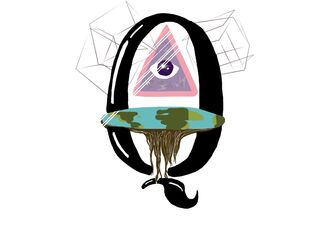The Psychology of Conspiracy Theories
Is there a link between conspiratorial thinking and psychopathology?
by Brielle A. Marino Psy.D.
Conspiracy theories are defined as a minority theory, or alternative explanation, for important events. Conspiratorial thinking typically challenges conventional wisdom, and has often been likened to paranoid ideations. In fact, recent evidence suggests there are commonalities underlying certain personality traits of individuals who strongly endorse conspiracy theories to those with psychological illness.
Conspiracy theories often result when an explanation for a major event is unfounded or believed to be insufficient. It is, therefore, the result of the human tendency to need resolution and understanding. Specifically, conspiracy theories attempt to explain events in ways that foster a sense of control and safety in the mind of the believer (Douglas, Sutton, & Cichocka, 2017). Conspiracy theories tend to be formed in monological thinkers (i.e. those who garner information from a singular source that is believed to be true and is without consideration of contrasting discourse).
It is not surprising, then, that conspiracy theories tend to flourish, and they do so for a number of reasons. For one, conspiracy theories are attractive as they appeal to the emotions of belief-holders. Conspiracy theories offer an answer, or explanation of events, that reduces anxiety. In doing so, conspiracy theories give a false sense of control to the believer. Conspiracy theories also flourish by nature of their tendency to be neither testable nor, as a result, falsifiable. Take, for example, the classic hypothesis-testing paradigm: if you want to prove that all swans are white, you shouldn’t look for white swans. You must look for black swans. The design of conspiracy theories is to look for white swans, it is thus both unscientific and self-perpetuating.
However, conspiratorial beliefs also persist in spite of strong evidence to the contrary. Herein lies the correlation to psychotic processes. A primary symptom of psychosis is delusional thinking. Delusions are defined as false beliefs. They can be paranoid, grandiose, or persecutory in nature, however, they all share their tendency to be unwavering in the face of contrasting evidence. This type of poor reality testing is also found amongst individuals who hold strong beliefs in conspiracy theories.
Other commonalities amongst individuals with psychosis and those who hold conspiratorial beliefs are a tendency to be anxious, to hold other paranormal and paranoid beliefs, to engage in monological thinking, and to overly endorse their own intuition/causal attributions rather than engage in analytical and rational problem-solving. The jumping-to-conclusions bias, which is well-documented in individuals with psychosis, has also been attributed to conspiratorial believers (Drinkwater, Dagnall, & Parker, 2012).
While finding causal explanations for events is a crucial part of understanding the world around us, the deviant cognitive processes underlying both psychosis and conspiratorial thinking can be dangerous. For example, delusions are a key factor in psychosis that leads to poorer quality of life and are typically resistant to antipsychotic medications.
While some estimates suggest up to 50 percent of Americans believe at least one conspiracy theory, the types of conspiratorial beliefs likened to psychosis occur in individuals with staunch, unwavering beliefs in one or more conspiracy theories, and whose beliefs tend to disrupt their daily functioning and quality of life.
In fact, individuals who have strong beliefs in conspiracy theories, to the extent that these beliefs disrupt their daily functioning, may meet the criteria for attenuated psychosis. Attenuated psychosis is a burgeoning diagnosis described in The Diagnostic and Statistical Manual of Mental Disorders (5th ed.; DSM–5; American Psychiatric Association, 2013) that includes mild forms of delusions, hallucinations, and disorganized speech in the absence of a clear psychotic disorder. Attenuated psychosis is an area for future research, and is thought to be a precursor or risk factor for schizophrenia.
While difficult to foster, insight appears to be the key to dissuading delusional and conspiratorial thinking. Researchers suggest that helping people who endorse conspiracy theories to think more logically and analytically can actually reduce conspiratorial thinking (Swami et al., 2014). Similarly, cognitive-behavioral therapy for psychosis relies on improving evidence-testing and other cognitive skills to combat delusional thoughts, which in-turn fosters insight.
While conspiracy theories can be a human response to frightening and unsettling times, it is prudent for us to understand our world in more logical terms. Now more than ever it is important to look out for evidence and ask questions about sources, facts, and reliability.
References
American Psychiatric Association. (2013). Diagnostic and statistical manual of mental disorders (5th ed.). Washington, DC: Author.
Douglas, K. M., Sutton, R. M., & Cichocka, A. (2017). The psychology of conspiracy theories. Current directions in psychological science, 26(6), 538-542.
Drinkwater, K., Dagnall, N., & Parker, A. (2012). Reality testing, conspiracy theories, and paranormal beliefs. Journal of Parapsychology, 76(1), 57-77.
Swami, V., Voracek, M., Stieger, S., Tran, U. S., & Furnham, A. (2014). Analytic thinking reduces belief in conspiracy theories. Cognition, 133(3), 572-585.